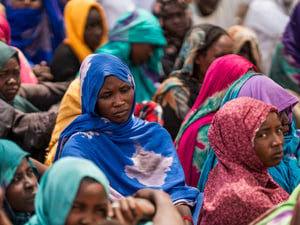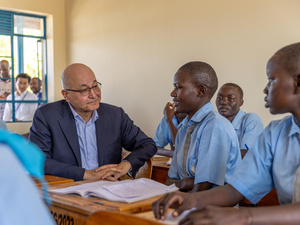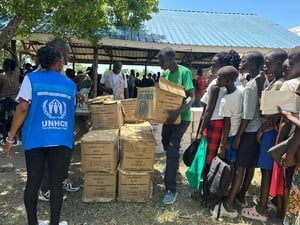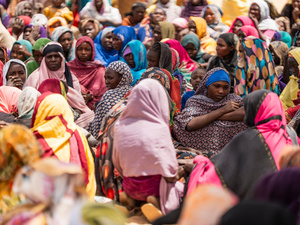Tens of thousands displaced by clashes in Somalia
Tens of thousands displaced by clashes in Somalia
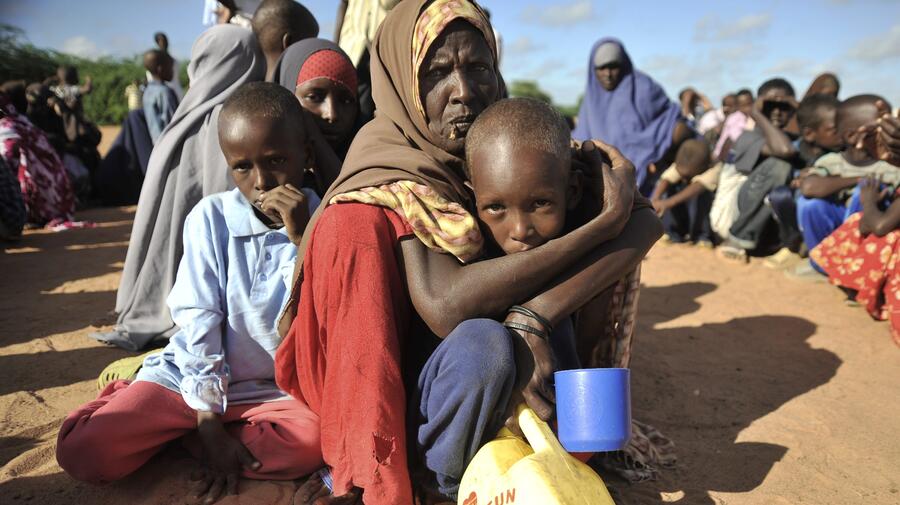
Ongoing violence in Somalia has forced more than two million people to flee their homes. Most are displaced within Somalia while others live as refugees in neighboring countries.
GENEVA, October 26 (UNHCR) - Fierce fighting between rival militia groups in Somalia has forced an estimated 60,000 people from their homes, UNHCR reported Tuesday. Briefing journalists in Geneva, spokesman Andrej Mahecic said some 40,000 people had sought safety in neighbouring villages following recent clashes between the Al Shabaab militia and a rival group allied to the government in the town of Beled Hawo, near the border with Kenya. Many were now living in the open without access to food, water or sanitation.
Thousands of other Somalis have crossed into the Kenyan town of Mandera where they are being hosted by the local community. "The refugees are waiting for the fighting to die down before making a decision about whether to return home," said Mahecic. "We are particularly concerned about the worsening health and security conditions for thousands of others who have been camping out in the open at a makeshift settlement just inside the Kenyan border since mid-October."
The number of Somali refugees at the so-called Border Point One has been increasing daily and currently stands at more than five thousand. Most of those living in the settlement are women, children and the elderly and UNHCR staff on the ground report the site lacks shelter or sanitation. "The situation for the refugees there is truly deplorable," said Mahecic.
The camp is only 500 metres from the Kenya-Somalia border and dangerously close to Beled Hawo if the fighting there was to resume. UNHCR is urging the Kenyan authorities to speed up the relocation of the refugees to a reception centre where the agency and its partners can better attend to their protection and assistance needs, Mahecic told reporters.
A woman who crossed into Kenya with her five young children told a UNHCR staffer that she had fled the Somali capital Mogadishu for Beled Hawo eight months ago after husband was killed. Living in a run down settlement for the displaced, she was again forced to flee after clashes erupted in the town. "I'm scared. I don't know what to do. I have nothing with me and I'm afraid my children will not bare this situation for much longer," she said.
In Kenya, UNHCR has begun registering the new arrivals and is coordinating efforts by the Kenyan authorities and aid agencies to provide food, water, shelter and sanitation. The security situation inside Somalia continues to hamper the provision of humanitarian assistance to those displaced, though the UN refugee agency is working with local partners to assess the situation.
Nearly 1.5 million Somalis are displaced within their country while a further 600,000 live as refugees in neighbouring countries.

